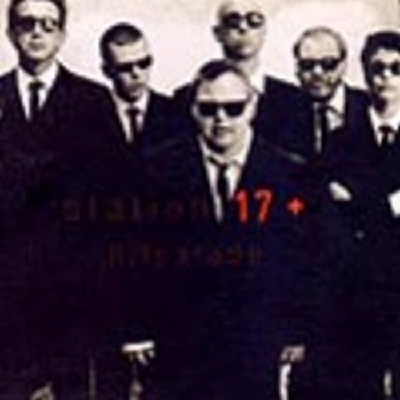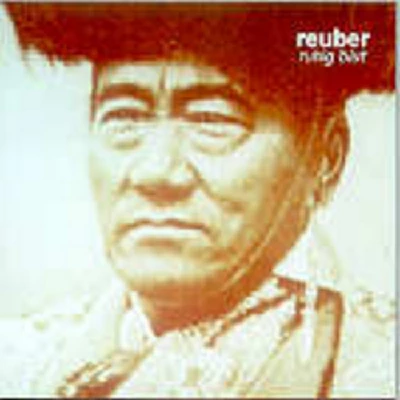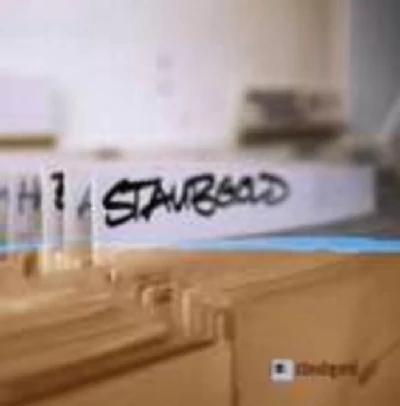published: 22 /
1 /
2002

It has been nearly twenty five years since Kraftwerk released 'The Man Machine.' With German electronica still as popular now, David McNamee examines its status now, particulary with regard to recent releases by Station 17+ and by the Staubgold label.
Article
Forgive me for saying so ubercool followers of German electronica, but there is something implicitly racist in the way German machine music has been defined over the years. German electronica, and in particular those inhabiting the ‘IDM’ spheres, however magnificent in form, nowadays seems almost a self-caricature. Not just of kraut electronica, not just – and as much as we may attempt to avoid mentioning it we really can’t, it would be like writing a book on Prince William and not mentioning his father was the future King of England – of Kraftwerk, but of being German and Germany itself.
The ‘Teutonic’ clinicism, the micro-level detail, the mathematics of the music’s structure and form, the ‘get in line!’ orderliness of the beats - which, in other European or American IDM, is a scrambling, fluttering mess. Even the new art riot of Digital Hardcore can only hope to escape this self-fulfilling prophecy by appropriating elements of seething, insurrectionary American Suicide ‘n Roll (their Germany is a Germany of Baader and Meinhof and the Red Army Fraction, one where swathes of Deutsch society must be culturally eradicated and others united, a constant sound of friction ringing like tinnitus in the ear of the Motherland as it surges ahead of us into the 22nd Century).
So if, as was suggested by Momus in a recent essay noting the differences in public transport seating, a nation’s collective habitus (its unconscious networking of cultural and social processes, signs and signifiers, ways of being) is shaped by the weight of its history, or by its constitution, then that country’s art will arrive on a preconceived aesthetic base. In Germany’s case this template has been a notoriously postmodern one; the only other viable option being David Hasselhoff and Die Toten Hosen. Since Schneider and Hutter dropped the weirdy beards and funny folk music, German electronica became an active commentary on the production of aesthetic meaning as it pings between politics and constitutional history, glitches through expressionism and industrialization.
Even if you can find an argument to suggest that postmodernism isn’t really about aesthetics anyway - and by now you may be hissing like Basil Fawlty "Don’t!! Mention!! The!! War!!" - there’s a lineage to be traced from the pre-war films of Fritz Lang to Stockhausen, Germany’s contribution to musique concrete; to krautrock which metronomically splurged into being almost unannounced, predating post-rock with is calculated rock n roll reconfigured by German computer heads; to 'Autobahn', Einsturzende Neubaten, Clicks & Cuts, Mouse On Mars and all the rest of it. Doesn’t it make you jealous? They had an entire aesthetic cosmology to paint national identity (everything from the ubermensch to sly flirtations with communism) in 'The Man Machine'; we had Parklife.
The racism in this lazy semiology then, I argue, arrives because this identity has become one imposed almost entirely by non-German commentators. There’s something almost Nazi-like about the Nazification of a country who, more than anything, would desperately want to put to bed any associations with the word ‘Nazi’. It was, after all, over half a century ago. So where does that leave us in 2002?
Koln-based label Staubgold is a relatively new addition to the kraut space race, its excellent compilation album Staubgold being only their 20th release, but the energized synth-melting robomusik within these 14 tracks (contributors include Schlammpeitziger and To Rococo Rot) presents enough of a nuclear threat to Frankfurt’s Mille Plateaux to give them second thoughts about standing for that title of ‘The New Warp’. Of particular note is Reuber’s ‘Ruhig Blut B’, the sound of nothing less than Aphex Twin’s ‘Didgeridoo’ acquiring biomechanical engineering and attempting to punch its way up through the catacombs of Metropolis. It appears in its delicious full 22-minute version on Reuber’s coruscating three-track album, which sounds like computer cannibals chowing down to a tasty analogue omelette.
Station 17+ are a collective of mentally-handicapped musicians (no, really) whose musical output constitutes part of a pioneering new ‘musical therapy’. On Hitparade, Station 17+ have been remixed to a pulp by the likes of Pole and Kreidler. It presents some dodgy questions; is it exploitation? To which the answer can only be; are you saying disabled people can’t release records? The minimalist, clean-sounding remixing – which makes the tracks sound as though they’ve been pieced together by nanobots rather than simply played, oh very German! – does, perhaps, add a more coherent platform to build on Station 17+’s original contribution.
Exactly what they did contribute is perhaps a wonder, non-sequiteur monologues narrate over sparse, clinical beatprogramming and in Denyo 77’s ‘Ich Und Ich’ a fantastically enthusiastic rap injects some rare buoyancy into what at times can be an overwhelmingly serious musical study. Although someone - well meaning, undoubtedly - will probably suggest something about ‘madness being the hallmark of genius’ (and no, madness and disability do not necessitate the same thing), there is an entirely new perspective here upon which the tracks are founded. Maybe it just sounds a little more human and a little less ‘Ich bin ein ROBOT!!’ than a lot of German electronica at the moment. That beautiful crystalline precision still permeates every song though, sounding like it was sucked straight from Florian and Ralph’s Spacelab where they’ll be busy formulating the music for the next millennia.
Station 17+ just happen to make you smile that bit more – sometimes it’s easy to forget that music is as much for living in as it is for thesis-ising over.
Picture Gallery:-

